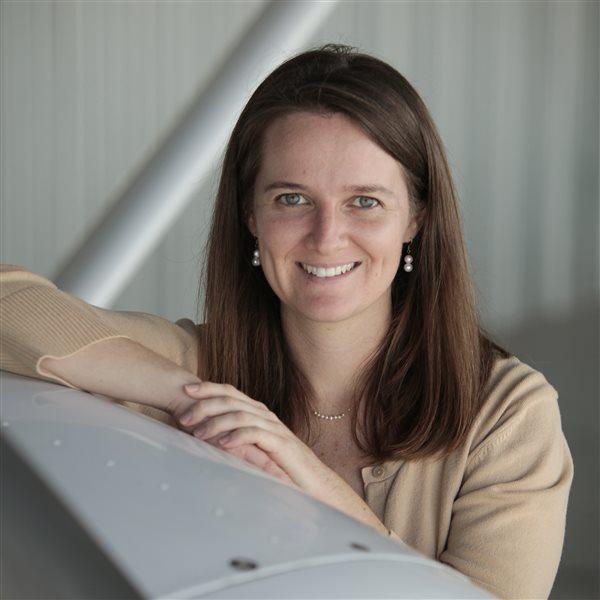Dec. 19, 2013
Contact: Steve Hedges
301-695-2159
Frederick, MD—The Federal Aviation Administration (FAA) has announced it will put its controversial sleep apnea policy on hold, opting instead to work with stakeholders to find a more acceptable way to address concerns about undiagnosed sleep disorders in pilots.
Federal Air Surgeon Fred Tilton contacted AOPA Thursday, Dec. 19, to say that the FAA would not move forward with implementing the policy, which is a reversal from statements made on Dec. 12 when the FAA said the policy was a “process enhancement” and would move forward in January.
“This is an important win for the aviation community, and we appreciate the FAA’s willingness to step back from its previous position, open discussions with stakeholders and find a better path forward,” said AOPA President Mark Baker. “We look forward to collaborating with the FAA to resolve their safety concerns in a way that makes sense.”
AOPA has vocally opposed the policy, which would require sleep apnea testing, and if necessary treatment, for all pilots with a body mass index (BMI) of 40 or higher. Under the policy, testing would later expand to include more than 120,000 pilots with a BMI of 30 or greater. Air traffic controllers also would be affected.
The issue was discussed during a Dec. 18 meeting between AOPA’s Baker and FAA Administrator Michael Huerta. On Dec. 12, Baker wrote to Huerta urging him to withdraw the policy and use the rulemaking process to develop any new requirements regarding sleep disorders.
Thursday’s announcement does not affect a bill that would force the FAA to use the rulemaking process before implementing any new policy related to sleep disorders. That measure has passed out of committee and is ready to move through the full U.S. House of Representatives.
The decision not to move forward with the sleep apnea policy also comes just one week after introduction of a bill that would significantly expand the driver’s license medical standard, allowing more pilots to fly more types of aircraft without going through the time consuming and sometimes costly third-class medical certification process.
About AOPA
Since 1939, AOPA has protected the freedom to fly for thousands of pilots, aircraft owners and aviation enthusiasts. AOPA is the world’s largest aviation member association. With representatives based in Frederick, Md., Washington, D.C., and seven regions across the United States, AOPA provides member services that range from advocacy at the federal, state, and local levels to legal services, flight planning products, safety programs and award-winning media products. To learn more, visit www.aopa.org.
- AOPA –
13-4-20

Related Articles

Federal Air Surgeon Fred Tilton contacted AOPA Dec. 19 to announce that the FAA will not move ahead with implementing its new sleep apnea policy in January. The policy would have required pilots with a body mass index (BMI) greater than 40 to be tested, and if needed, treated for obstructive sleep apnea. Instead, in the new year, the agency will open discussions with aviation industry stakeholders to find a way to balance pilots’ and the FAA’s concerns.
That’s a welcomed reversal of the agency’s course just a week ago, when on Dec. 12, Tilton said the FAA was going to move forward with a “process enhancement” and was not required to go through the rulemaking process nor gather comments from the industry.
“The FAA has heard the concerns of pilots, AOPA, aviation medical examiners, and Congress loud and clear,” said AOPA President Mark Baker, who met with FAA Administrator Michael Huerta Dec. 18 to discuss a wide variety of general aviation issues, including the controversial sleep apnea policy. “We’re grateful that the FAA has taken our concerns into consideration and will allow the community to come together in January to figure out a better way forward.”
This announcement, however, does not mean the FAA is dropping the issue altogether: The agency reiterated to AOPA that it still has significant concerns about pilots flying with undiagnosed sleep apnea. However, the FAA is willing to work out what AOPA hopes will be a more palatable solution for pilots.
Meanwhile, Congress still has legislation that has advanced to the full House that would require the FAA to go through the rulemaking process.
On Dec. 12, Baker wrote to Huerta calling on him to withdraw the new sleep apnea policy or send it through the rulemaking process. He also noted that Congress recently introduced the General Aviation Pilot Protection Act, which would allow pilots to use their driver’s license as a medical certificate for certain noncommercial VFR operations.
“AOPA is ready to start the new year off right, working collaboratively with the industry and FAA to develop a more workable solution and to educate the aviation industry on the FAA’s concerns,” Baker said.



